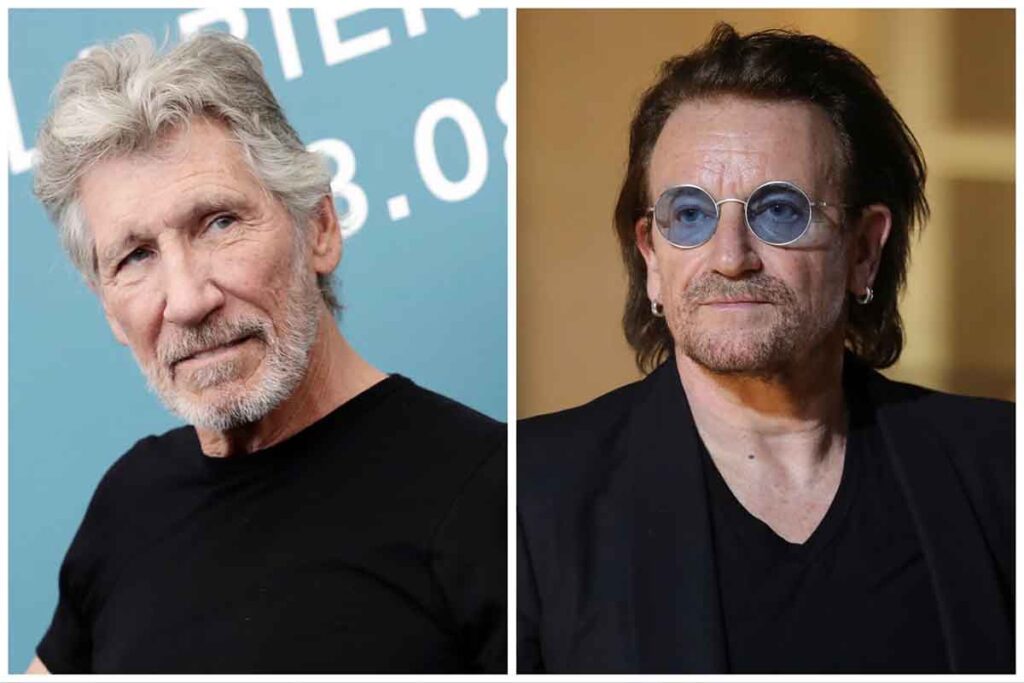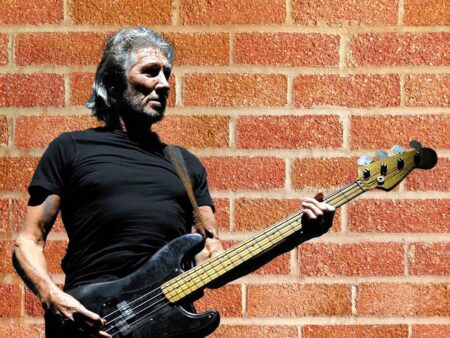In February 2024, a long-simmering ideological divide in rock music burst into public view when Pink Floyd co-founder Roger Waters harshly criticized U2’s Bono. The trigger: Bono’s onstage tribute to Israeli victims of the October 7, 2023, Hamas attack, during a U2 concert at the Sphere in Las Vegas. Waters, long vocal about his stance on the Israeli-Palestinian conflict, called Bono’s actions “disgusting” and labeled him “an enormous sh*t” during an interview with Al Jazeera.
Celebrity conflicts are common, but this clash unfolded amid a deeply polarizing geopolitical crisis, making it far more than a personal spat.
Contents
The Context: Conflict and Concerts
The October 7 Hamas-led assault on Israel included a massacre at the Supernova music festival near Re’im, killing over 260 attendees—one of the deadliest attacks in Israeli history. Israel’s military responded with a campaign in Gaza, leading to a humanitarian crisis and reigniting intense global debate over the region’s future.
The day after the attack, U2 performed at their Las Vegas residency. Bono paused before “Pride (In the Name of Love)”—a song originally about Martin Luther King Jr.—to acknowledge the tragedy. He adapted the lyrics: “In the light of what’s happened in Israel and Gaza… in the light of the Stars of David, sing… for those beautiful kids at that music festival.” His call for peace drew both praise and criticism. Critics took issue with the reference to Israeli victims and the use of the Star of David, viewing it as neglecting Palestinian suffering and echoing support for Israeli state policy.
Roger Waters Responds
In a February 2024 Al Jazeera interview, Waters didn’t hold back. He accused Bono of glorifying what he considers an oppressive regime. “It was one of the most disgusting things I’ve ever seen in my life,” Waters said of the tribute. “It was revolting in the extreme.” He called Bono “an enormous sh*t,” adding, “His friends should pick him up by the ankles and shake him until he stops being such an enormous sh*t.”
Waters framed his outrage in moral terms, referencing his family’s World War II legacy and his personal creed: “Do the right thing.” He claimed Bono’s words amounted to “sticking up for the Zionist entity,” casting the tribute as an implicit endorsement of Israeli policy rather than a humanitarian gesture.
A History of Controversy
Waters is no stranger to political backlash. A staunch supporter of Palestinian rights, he has backed the BDS (Boycott, Divestment, Sanctions) movement and criticized artists who perform in Israel. He’s faced repeated accusations of antisemitism—most recently in the German documentary The Dark Side of Roger Waters, which scrutinized his use of Nazi-inspired imagery onstage and remarks about Jewish public figures. Waters denies the claims, insisting his critiques target governments, not ethnic or religious groups.
In 2023, a Berlin performance drew global attention when he wore a long black coat with red armbands. Waters said the imagery, tied to The Wall, was anti-fascist in nature. But many viewed it as provocative and poorly timed given the political climate.
Bono’s Record of Activism
Bono, meanwhile, has cultivated a global reputation as a humanitarian. Over the years, he’s advocated for debt relief, global AIDS funding, and peace in Northern Ireland. He has also supported both Israeli and Palestinian civil society organizations.
After the Sphere performance and the ensuing backlash, U2’s social media emphasized universal human rights and expressed sympathy for Palestinian civilians. However, the band did not issue a direct clarification or apology for Bono’s tribute during the concert.
Why This Clash Matters
The disagreement between Waters and Bono—two of rock’s most prominent figures—goes beyond ego. It highlights the increasingly fraught territory public figures navigate when addressing issues related to Israel and Palestine. Waters sees any expression of solidarity with Israel as inherently political unless paired with condemnation of its policies in Gaza and the West Bank. Bono, in contrast, seemed to offer a gesture of compassion at a moment of tragedy—though it was received by some as one-sided.
This moment raises pressing questions: What responsibility do artists bear when referencing international conflicts on stage? Can tributes to victims be perceived as political endorsements? And how should public figures communicate nuance in real time under intense scrutiny?
In an era when social media amplifies every statement, artists like Bono and Waters face mounting pressure to strike a balance between empathy and political precision. When they fail—or are perceived to—repercussions can be swift and polarizing.
A Divide That Reflects a Larger One
The Waters-Bono clash isn’t just a feud—it mirrors a broader divide in Western discourse around the Israeli-Palestinian conflict, especially within artistic and activist circles. Whether their confrontation prompts meaningful dialogue or deepens rifts remains uncertain. But it’s clear that, in 2024, not even rock and roll can escape the gravity of global politics.




